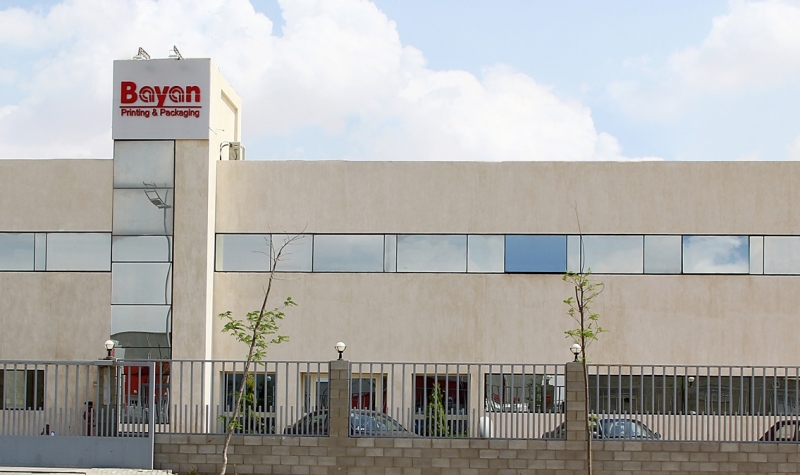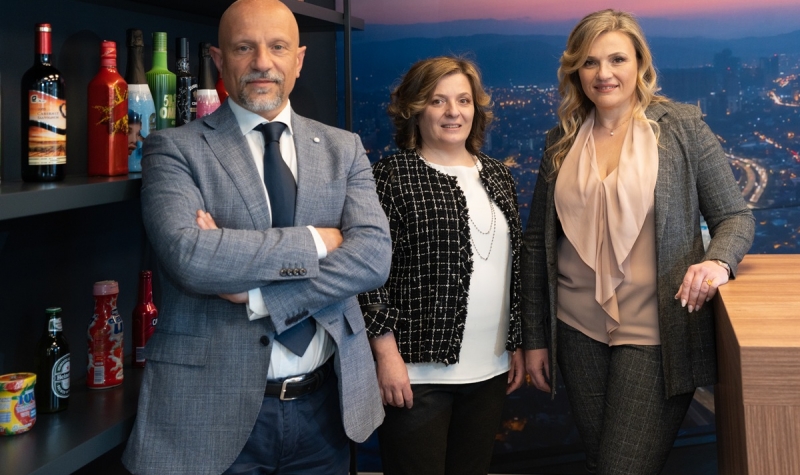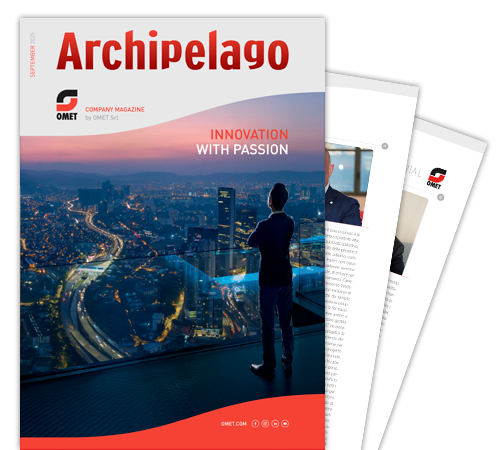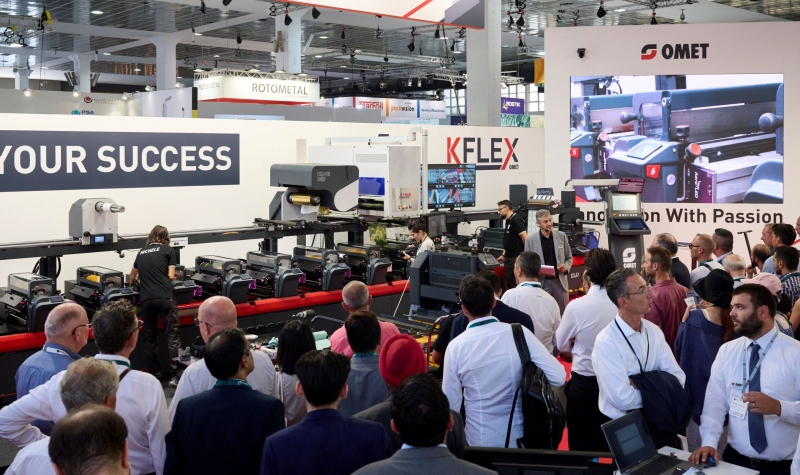
OMET, the Made in Italy Excellence exported worldwide
The Made in Italy technology is an international landmark for the metalworking industry, and OMET brand has been one of the technological excellences in the area for 60 years in the design and production of label and packaging printing machines, as well as machines for tissue converting. Export, driven by the globalization of these markets, has been the key to the company’s growth, but it is an increasingly complex challenge to tackle. In this interview Marco Calcagni, OMET Sales and Marketing Director, outlines the contours of a continuously evolving market.
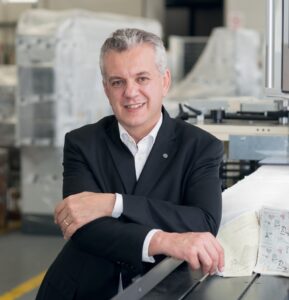 In recent years, 80% of OMET’s turnover has come from exports, demonstrating the company’s ability to seize opportunities in international markets by investing in research, development, and post-sales assistance to gather approval from customers worldwide. This approach has enabled OMET to expand into over 80 countries and attain a significant share of the global market for printing and tissue converting machines.
In recent years, 80% of OMET’s turnover has come from exports, demonstrating the company’s ability to seize opportunities in international markets by investing in research, development, and post-sales assistance to gather approval from customers worldwide. This approach has enabled OMET to expand into over 80 countries and attain a significant share of the global market for printing and tissue converting machines.
The international propensity of the company is innate: already in the 1960s, OMET participated in the first international exhibitions and concluded its first foreign sales. The international development of packaging and tissue markets with disposable products (napkins, towels, and other folded paper items) has subsequently propelled the export share, making it predominant from the early 2000s onwards.
“This is not a company strategy, but a necessity in these sectors – explains Marco Calcagni, OMET Sales and Marketing Director –. The market, especially in printing, is governed by multinational corporations with facilities all over the world; in tissue, exports are closely tied to volume factors and demographic growth. At this moment, the most important potential lies in Asian countries, followed by South America and USA. Unfortunately, Europe is stationary in terms of consumption and growth, including demographics.”
Constant presence at major international exhibitions and its robust international sales network with over 50 sales agents in various countries, reporting to area managers, allows OMET to reach every corner of the global markets. with a brand now high esteemed and well-established globally, supported by an efficient and timely after-sales service, both on-site and remotely. This is backed by significant investments in digitization.
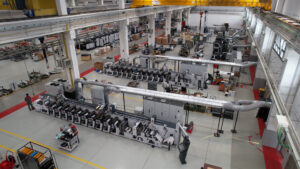 “There is not one market where we export more – continues Calcagni. – It depends on the years, the moments, the investments our customers choose to make in one country or another based on several factors, including the presence of incentives or the greater convenience determined by the monetary situation. Our machinery is complex and very expensive, and a small difference in the currency exchange can mean significant amounts. Regarding tissue, exports also depend on raw materials: converting operations originate near paper mills, and they are usually important projects with orders for several production lines to start new manufacturing sites. The following year, the investment may focus on an entirely different area.”
“There is not one market where we export more – continues Calcagni. – It depends on the years, the moments, the investments our customers choose to make in one country or another based on several factors, including the presence of incentives or the greater convenience determined by the monetary situation. Our machinery is complex and very expensive, and a small difference in the currency exchange can mean significant amounts. Regarding tissue, exports also depend on raw materials: converting operations originate near paper mills, and they are usually important projects with orders for several production lines to start new manufacturing sites. The following year, the investment may focus on an entirely different area.”
Difficulty is called “uncertainty”
The key to OMET’s global success historically lies in the constant innovation and in the quality of its products: essential elements that today are no longer enough to guarantee an international success. OMET, like other Italian metalworking companies, face continuous challenges in the global market, including the increasing competition from international manufacturers and emerging countries, but what is intimidating today is the uncertainty in the markets. “The main difficulty is dealing with uncertainty – states Calcagni -. Wars, economic crises, pandemic, all create uncertainty among consumers, and consequently in distribution and, moving up the value chain, in the companies that are our customers: today they may take a long time to decide on a significant investment, and when they make it, they would like to start the next day.
As producers of complex machinery, we need to exhibit great flexibility to be quick in product construction, delivery, and modification in case of changing conditions. For example, the war in Israel created uncertainty overnight. Planning difficulties are enormous, and companies must become increasingly agile.”
Future challenges and opportunities
“Our market is quite virtuous, – concludes Calcagni, – because there will always be an increasing need for packaging worldwide, driven by considerations of safety, information, and transportation. I am referring to packaging in plastic, paper, or other eco-friendly materials. Any product is no longer sold loose; consumer safety relies on labels and secure transportation. We also expect significant developments in traceability and anti-counterfeiting. Even single-use tissue paper is growing: it is better, more hygienic, and more cost-effective. A paper napkin costs less than washing and ironing a cloth in terms of energy consumption. It is also better in terms of environmental impact, as the numbers certify. The future is certainly positive for our markets, but uncertainty requires all companies to change both their approach to the markets and internal organization.”
Article published in the magazine “IMPRESE” edited by La Provincia newspaper, Dec. 2023
 is the web magazine with all news about OMET Group
is the web magazine with all news about OMET Group 



